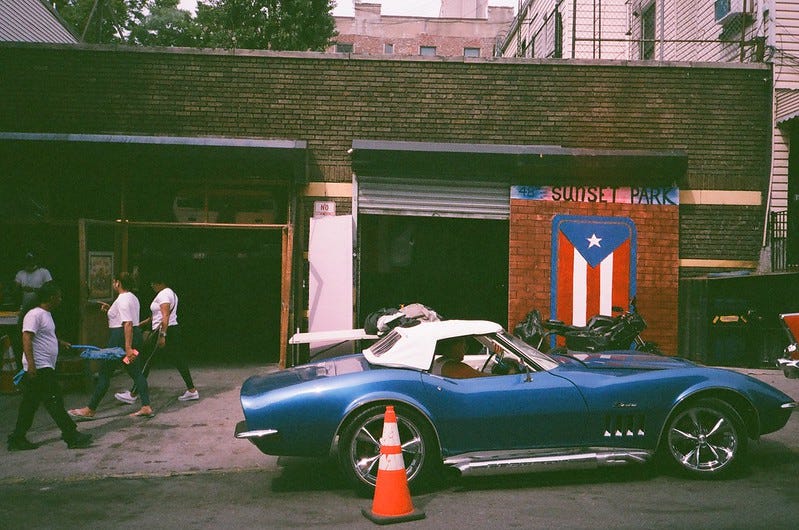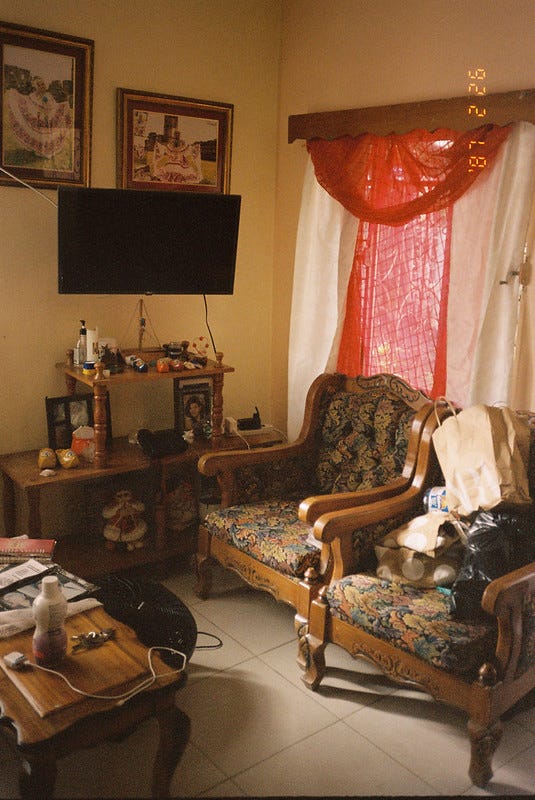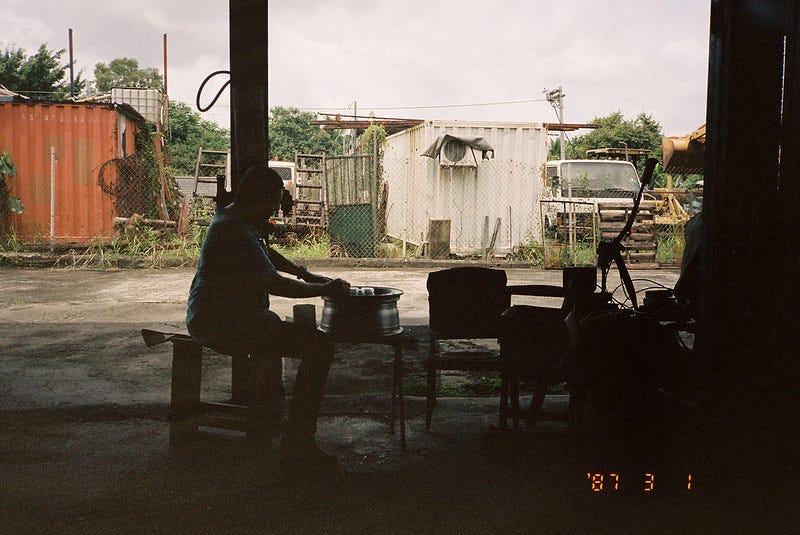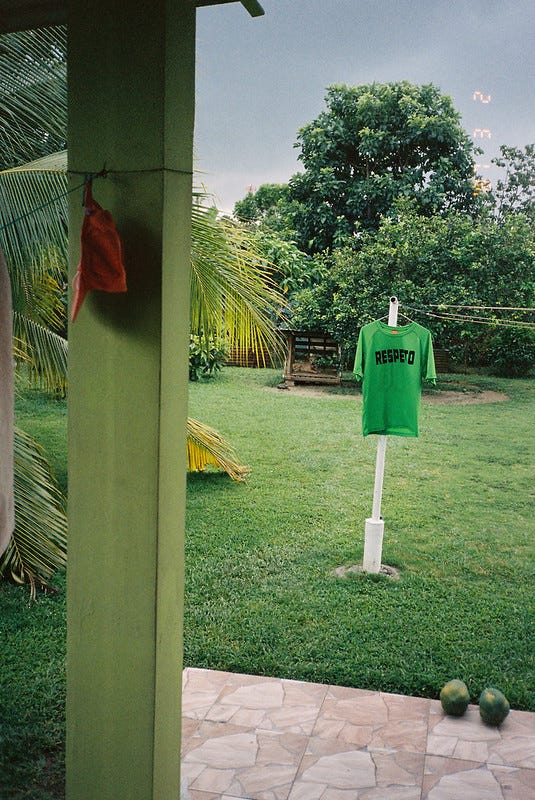On Returning Home...On Finding Home, or...What is Home?
Reflecting on a recent trip back to Panama and how these trips influence my everyday life in the US.
Latinidad has always had a staying presence in my household. I remember feeling a sort of curiosity at a question on my college application — what languages are spoken in your household? Spanish? Like…yeah? Is that weird? Only now has my perception of my upbringing begun to influence more of my understanding of my place here, in America, and my idea of home. Because, on the whole, though I’ve led my life with these daily reminders of Panama — where my mom’s from — I’ve actually had little interaction with Panama as a country.
This idea puts me in company with a lot of Latinos, of course. We take pride on our sancocho, our love of platanos, even la bandera. But growing up in the US, no matter how much we may maintain our connection to a foreign home, differs from growing up in Panama, or Puerto Rico, or the Dominican Republic…which puts us in a unique position of both forging new perspectives on the idea of being “American,” and fading in distance from the place that holds such a rich history of culture, tradition, and family for us.
I went back to Panama for about 10 days just here at the end of July. I try to go every year. It wasn’t always like that. In fact, I might have painted my earlier trips to Panama as a duty, responsibility—especially since, as I would reminisce on Panama as a child, a teenager, I considered my role as not much more than show-and-tell, a prop for the sake of my mother to introduce her son to others. I spoke little Spanish, though I could always understand the few words that preceded an awkward counsel on my stature and being: el todavía no habla español? These moments, all eyes on me, my mouth pried open for a pitiful “estoy bien, gracias” or “tengo trece años,” burned a deep, deep shame in me that never really encouraged me to go back.
All to say, my earlier recollections of Panama paint a picture of reservedness, holing up in my abuela’s room, listening to my Walkman—not this glamorized view of reconnecting with a culture, weaving together a fabric of family lore. I deadass might have said to you at the time, “Panama is kinda wack.”
That changed when I picked up a little more Spanish. I crewed up with the Dominicans in college, found myself falling in love with a Dominican girl, too. They taught me to speak Spanish with pride, inventing with slang the way they might have tipped sazon into a recipe as an afterthought. Precision took a backseat to communication. I learned a confidence in reaching another person, not perfecting Spanish. I shed a lot of the timidity that had accompanied my shame around my imperfect Spanish and, when I returned to Panama on my own in 2016, 2017, I found myself reborn: I had, as a result of this discovery of language, of communication, presented myself to my family anew.
Since then, I’ve made a conscious effort to go back, because I have found a way to be, embracing my (in)ability to speak Spanish, the fact that pudiera haber sido isn’t going to roll off my tongue. And this last time, I found myself resting on a unique, almost shocking thought: I’ve embraced this side of myself, more of my relationship to Panama, my level of Spanish, precisely because I’ve accepted that I’m not really from Panama, and I’m not Panamanian in the way that my cousins are Panamanian, because no matter how hard I try to adopt the slang, to move smooth with my primo David when we roll with his squad, to remember the top hits of the country…I don’t live there, I didn’t grow up there, and I’m not like from from there. I’m from upstate New York. I’m from the US.
Right after graduating from college, I ran into a fellow alumna, a fellow artist who pursued an unsteady path in film festival management rather than the tried-and-true economics of our peers. She was from Colombia, reminiscing, same as me, on all the beauty of the country. She had made one of these homecoming trips around the same time I had, and I could feel how she breathed life into these portraits of Colombia: her abuela’s house, una sala igualita a la foto que he puesto aquí, la comida, todo. We both agreed: we wanted to retire in our “home” countries, returning back to our roots in a literal way of reliving the identity we had always lost access to. We wanted to experience life in these countries in a way our parents had, perhaps achieving some emotional fulfillment in backpaying a tax our parents had incurred by leaving their countries early. Where they had given up everything, we would reinstate ourselves: integrating into this original culture, owning a home, rejecting America.
But then she added a footnote, something that has stayed with me since then: “but you know, that’s just how we see our countries in these two-week, three-week visits. And it will always feel like a vacation when we go on vacation.” Nah…damn. Word?
By this point, the theatrics of seeing my family has given way to routine. The conversations cover less ground, less stuff of life to catch up on, and, of course, my family learns the need-to-know information in a second: I’m still alive. I’ve learned my way around Panama City, and Panama in general, too, having taken the buses that operate throughout the country on the Interamericana. I’ve been to David, Santiago of course, Aguadulce, Colon, and I’ve been to the tiny towns, the homecoming jams with an entire pueblito pulled up to dance to some tipico.
This past trip, end of July, no holidays or days off for my cousins, the everyday schedule compelling my family to the office, to the work site, I sat down at my tia’s kitchen table for breakfast. She might have given me the grand welcome on my first homecoming trip, a manner of enticing me back more often, but she knows the deal now. She knows of my vow to return as often as possible. So she kinda had the leftovers out, pointing with her lips to a few tupperwares, and I assembled my plate: tortilla and like costilla de puerco. Talking like heavy heavy breakfast. And don’t get me wrong, I love her for always taking care of me, for treating me like one of her own children. But in that moment, I wrestled through some gristle with my teeth, crunched into a stale tortilla, and I had only a few days left until the end of my trip, I had bounced from town to town, spot to spot out of a firm commitment to visit and sit with each one of my family members, I had swapped out a few outfits from my carry-on bag—I thought to myself, “damn, I kinda miss my home setup, and I don’t know how much I fuck with the bomb heavy breakfasts.”
Heresy. The thought betrayed my sense of being Panamanian, which, up until this point, revolved so steadily around a consistent appreciation of all the little details, minutiae to everyday life, and cultural emblems that represented Panama to me. Back when I first made my homecoming at 23, 24, I would have been on Twitter alongside the rest of #PanamaTwitter reminiscing over empanadas, sancocho, polleras, stretched accordions and a tune from Samy y Sandra.
But why? Could accepting all these items of life in Panama compensate for…time not spent in Panama? This last trip left me with a sense of confidence in having returned to Panama now several plus times in adulthood, with family, with partners, alone. I lived there for a minute before the pandemic started. I’ve learned the routes and the scheduling behind squeezing in the tios in Santiago while double-dipping for a religious holiday out there. But something else, every time, calls me back to my normal life, because I crave the coffee of my crib, my comfortable digs, my sense of breakfast, my life that I’ve cultivated in the place where I’ve grown up.
The thought has remained me with since. I’ve stopped and started many times as I’ve tried to write about my time in Panama—short stories, essays, the starts of novels. I’ve wondered about how much claim I can have to a place where I didn’t grow up—and how much a distant place influences my everyday life here, too, no matter how far I move away. I’ve wondered about the true sense of stasis, self, that I feel in Panama, when the sun filters into my uncle’s pickup after a day at the beach, a few beers in us, and if something to the sense of home will always require Panama.
I hope you’ll join in some of these reflections on life, Latinidad, masculinity, writing, and more. All the photos you see in these posts have been taken by yours truly, and I’m excited by the way I can share more about two crafts close to me—writing and photography—in one form. Thanks for reading.
CKC





